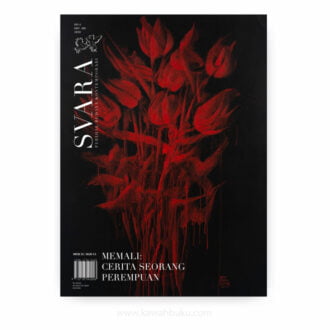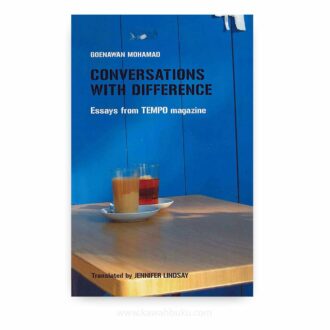Goenawan Mohamad
Goenawan Mohamad was born in 1941, in Batang, a small town in Central Java. The Dutch colonial government exiled his parents in 1927-1930, for their involvement with the let wing nationalist movement. After three years spent in a remote West Papua camp, the family was allowed to return to Java. Six years after Goenawan was born, in 1947, the Dutch occupying force executed his father. As a young poet living in Jakarta in his 20s, Goenawan was drawn into a bitter literary and political controversy when he joined a group of artists and intellectuals who signed the Cultural Manifesto in 1963. The manifesto was to oppose the Stalinist doctrine of socialist realism to be imposed by the then powerful Indonesian Communist Party with the support of President Soekarno’s Guided Democracy. Soon, the manifesto was condemned as ‘counterrevolutionary’ and banned. In 1965, Goenawan fled to Europe, with the help of some friends. He got a scholarship at the College d’Europe in Bruges, Belgium.
In October 1965, a dramatic political change took place in Indonesia. The political rivalry between the Indonesian Army and the Communist Party reached its climax when a group of left-leaning army officers killed several high ranking officers. The army struck back. Hundreds of thousands of people were massacred or jailed. Gradually the Army took control of the country, by pushing President Sukarno, who defended the Communist Party, into a corner. Sukarno fell from power in 1966 and was detained until his death in 1971. In 1966, Soeharto, the general who unseated him, became the president. Right after his return to Jakarta, Goenawan joined Harian Kami, a daily newspaper opposing both Soekarno and Soeharto; the newspaper was banned by the latter. In 1971, with others, he started a weekly news magazine called TEMPO. In 1984, Soeharto’s regime banned TEMPO for the first time. The government revoked the ban after two months. In 1989, Goenawan went to Harvard University as a Nieman fellow.
In 1994, again the government closed down the magazine, this time for good. With other colleagues, Goenawan established ISAI, (Institute for the Study of Free Flow of Information), a cover organization to create a network of underground publications and a clandestine news agency. In 1998, after a large-scale student protest, Soeharto left the stage. His regime collapsed. The media became free. Former TEMPO journalists decided to revive the magazine in 1999. In 2000, Goenawan left the magazine to focus himself on writing. He continues to write his weekly column, short essays called ‘Catatan Pinggir‘ (literally: marginalia), something that he has been doing since the early 1980s. He also writes literary and philosophical pieces, mainly for Kalam, an Indonesian quarterly on the arts, literature and ideas.
Goenawan also writes poetry and librettos. In June 1999, his ‘Kali‘ was staged as an operatic work at On the Board theatre, in Seattle, WA. In November, his long poem, ‘The King’s Witch‘, was used as the libretto of a musical piece by Tony Prabowo, an Indonesian composer, for a Julliard School of Music concert at the Lincoln Center, New York. Goenawan is a leading member of the Utan Kayu Community, (to which ISAI now belongs), a Jakarta alternative centre run by media, cultural and political activists to promote freedom of expression and thinking. His published works consist mainly of four small volumes of poetry and several books of literary and political essays, e.g. Kata, Waktu., 2001.


